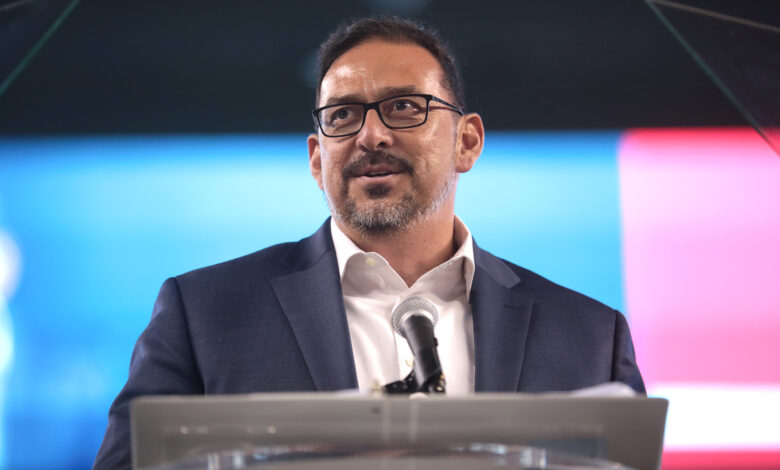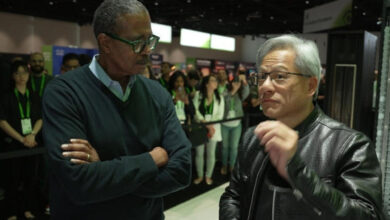Fontes says artificial intelligence advancements pose risks for upcoming elections

The Arizona Secretary of State’s Office hosted an election simulation exercise for journalists to highlight the challenges artificial intelligence poses for election experts, voters and the news media heading into the election season.
Secretary of State Adrian Fontes told the gathering of local and national reporters that advances in AI technology are one of the biggest new challenges election officials have to contend with today.
“With generative AI, particularly, we’re facing not just misinformation, disinformation, but in a very, very elevated way, in a very expanded way,” Fontes said. “And it’s going to reach broader and deeper than we’ve ever seen anything.”
Toshi Anders Hoo, director of the Emerging Media Lab at the Institute for the Future, said AI platforms are becoming better at impersonating human beings, including their voices and physical appearances.
“And also, this is kind of the cutting edge of this technology — AI is able to track and even emulate and respond to our emotions in real time,” Anders Hoo said.
Anders Hoo said humans are having an increasingly difficult time identifying what content is generated by artificial intelligence, citing a study that found participants struggled to discern which photos of faces were real and which were created by a computer.
“This study of over 700 people found that people were terrible at identifying which one — in fact, worse than terrible,” he said. “That you’re more likely to identify an AI generated image of the human than a human being; they call this hyperreality.”
And he said the tools in development to detect AI-generated content are not yet foolproof.
“The problem is false positives,” Anders Hoo said. “Humans are getting fired, and students are getting failed, because AI is saying that they didn’t write something when they did.
Fontes said that could pose real problems, because bad actors could use the technology to use fake videos of election officials themselves to spread disinformation.
Attendees at the event saw sample AI-generated videos, including a video purportedly showing Fontes speaking French and German, languages he does not actually speak.
To avoid worst case scenarios, Anders Hoo said society will have to develop new “sensibilities,” comparing it to the training and awareness that was developed in response to phishing emails.
“I don’t think many folks in here would fall for this email, right?” Anders Hoo said, referring to a phishing email that asked the recipient to send money in exchange for a larger payout at a later date. “We’ve built up new literacies; new sensitivities.”



